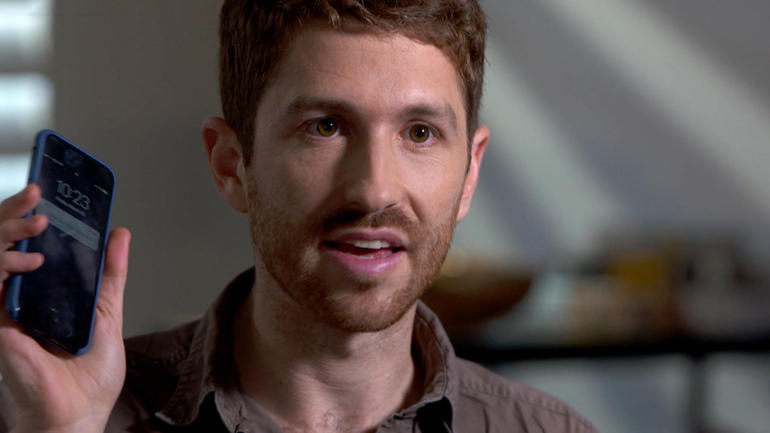

| Online: | |
| Visits: | |
| Stories: |

| Story Views | |
| Now: | |
| Last Hour: | |
| Last 24 Hours: | |
| Total: | |
60 Minutes: Why Can’t We Put Down Our Smartphones? Brain-Hacking
Share and Enjoy
In case you missed it, 60 Minutes aired a segment on how social media and smart phone apps are “purposely designed to be habit-forming”. You can read and see the entire Sunday, April 9, 2017, show below.
Anderson Cooper asks, Is Silicon Valley programming apps or are they programming people? According to a former Google product manager, Silicon Valley is engineering your phone to get you hooked, feel the need to check in constantly.
It’s because their apps and content are purposefully designed to be habit-forming, says former Google product manager Tristan Harris.
Smartphones are becoming a habit with many people and it’s all by design says a former Google product manager, Tristan Harris. He tells Anderson Cooper the apps and content — especially social media — carried on phones are purposely designed to be habit-forming. Cooper’s story also explores the brain science that explains how people are so susceptible to what some programmers call “brain hacking.” It was broadcast on 60 Minutes Sunday, April 9 at 7 p.m. ET/PT.
Tristan Harris, a former Google product manager
Harris compares smartphones to “slot machines” because, he says, “Every time I check my phone, I’m playing the slot machine to see, ‘What did I get?’” He is referring to “likes” on Facebook and Instagram, cute emojis in text messages and more followers on Twitter — powerful reinforcement for staying on your phone. It’s a flood of gratifying information that keeps coming via the so-easy-to-use scrolling method on digital devices — another way to keep us engaged.
“There’s a whole playbook of techniques that get used to get you using the product for as long as possible,” Harris tells Cooper. Kids are often the biggest users.
In one example, Harris says Snapchat, the messaging service popular with teens, has a streak feature that lets the teens know how many days in a row they have swapped messages with a friend. “Well, now I don’t want to lose my streak,” Harris says kids often think. “But it turns out that kids actually when they go on vacation are so stressed about their streak that they actually give their password to, like, five other kids to keep their streaks going on their behalf.”
“There’s a whole playbook of techniques that get used to get you using the product for as long as possible.” Tristan Harris
Harris says this is an example of the smartphone and its content designers programming people. “Inadvertently, whether they want to or not, they are shaping the thoughts and feelings and actions of people…There’s always this narrative that technology’s neutral. And it’s up to us to choose how we use it. This is just not true,” says Harris.
The strategy of engaging the user for as long a period of time as possible is just good business, even if it can have a bad effect on people. “They want you to use it in particular ways and for long periods of time. Because that’s how they make their money,” Harris tells Cooper.
Watch 60 Minutes video segments here:
At 30 second mark, in talking about this addiction, Anderson Cooper asks, “Do you think parents understand the complexities of what their kids are dealing in with in terms of their phones and apps and social media?” Former Google manager Tristan Harris says, “No, and this is really important. There’s a narrative that, ‘Oh I guess they are just doing this just like we used to gossip on the phone.’ But what this misses is that your telephone in the 1970s didn’t have a 1,000 engineers on the other end of your telephone redesigning it everyday to be more and more persuasive.”
Most tech companies say their priorities are “user engagement, writing code to get your brain to do certain things.
Source: http://feedproxy.google.com/~r/StLouisTeaParty/~3/-N-WpNGkT-s/




